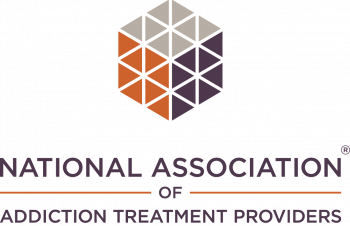Do you know someone with a mental health disorder who is also dependent on painkillers? If it looks like you or someone you know is abusing this type of medication, our mental health and co-occurring addiction treatment program can help. This type of program at TruHealing Gaithersburg is effective for helping someone dependent on opioids to take back control of their life.
 Treatment for Mental Health and Co-Occurring Painkiller Addiction
Treatment for Mental Health and Co-Occurring Painkiller Addiction
When addiction co-occurs with a primary mental health disorder, like depression, anxiety or PTSD, it can complicate both diagnosis and treatment. This is why it is so important to get treatment at a program designed to meet the unique needs of people with mental illnesses and co-occurring addictive disorders.
Different types of programs are available to assist you in breaking free from addiction while effectively managing your mental health disorder. Our mental health and substance abuse addiction treatment program in Maryland is ready to help you or your loved one regain control of their lives. All it takes is a phone call to get started.
Medical Detox and Withdrawal Treatment
The rehab setting may differ depending on the client’s needs and circumstances. The first treatment is likely a medical detox, but this first step is dependent on specific factors. The medical professional will consider various important considerations that include:
- Length of addiction
- Severity of addiction
- Type of painkiller that leads to dependency
- Situations related to the painkiller abuse
After detox, the client will also undergo a withdrawal treatment. The symptoms of withdrawal can range from mild to severe. Proper management is essential to ensure you will have a comfortable recovery.
Outpatient Care for Mental Health and Co-Occurring Painkiller Addiction
Sometimes individuals can get the treatment they need through standard outpatient care. Often, this is an excellent program for individuals with a mental health disorder which is already diagnosed and being treated and a milder co-occurring substance use disorder. Outpatient treatment may also be ideal for individuals who have already completed substance abuse treatment programs but have relapsed and need assistance getting back on the road to recovery. In outpatient settings, clients still get the same high-quality treatment but live at home and continue work away from the facility.
As in any mental health and addiction treatment program, psychological counseling is a crucial part of the painkiller addiction treatment program. It involves teaching the client various important healthy coping mechanisms and identifying triggers that could lead to relapse.
Aftercare for Mental Health and Co-Occurring Painkiller Addiction
Aftercare is crucial for teaching clients important strategies to prevent relapse and remain on their desired path. Once the painkiller detox treatment is complete, clients are encouraged to attend addiction counseling or supportive living. This step allows the client to connect and create networks in which they can get support and understanding, both of which are vital for complete recovery. Supportive living communities are especially helpful in promoting accountability.
Signs a Person May Have a Co-Occurring Painkiller Addiction
Knowing the signs of a co-occurring painkiller addiction in a person with an existing mental health disorder is essential since dependency can develop slowly. Because of this, many people discover that a person is struggling only after they have developed an addiction. The signs of painkiller addiction include:
- Loss of interest in everyday activities
- Worsening of mental health disorder symptoms
- Lack of medication compliance
- Lack of empathy
- Extreme lethargy
- Compulsive behaviors
When a person is addicted to painkillers, they engage in compulsive behaviors such as going from doctor to doctor. They do this to look for new prescriptions they can use to sustain their painkiller addiction. Overdose is a huge risk when abusing painkillers. Also, an attempt to stop the addiction on your own can be dangerous due to withdrawal symptoms. The best course of action is a treatment program from a reliable center which treats mental illnesses and co-occurring painkiller addiction.
Help Is Available at TruHealing Gaithersburg
At TruHealing Gaithersburg, we understand that developing a painkiller addiction is a risk for people with existing mental health disorders. Painkillers can lead to dependence even when individuals follow all the directions given. What matters is not how you became addicted but that you get support. Does someone you know show signs of painkiller addiction? We highly recommend seeking help with a painkiller addiction treatment program in Maryland. TruHealing Gaithersburg offers a variety of services to help someone achieve lasting recovery.
To learn more about our co-occurring painkiller addiction treatment program, contact TruHealing Gaithersburg at (833) 625-0398 to schedule an appointment.
TruHealing Gaithersburg is ready to help you or your loved one overcome a co-occurring addiction and better manage your primary mental health disorder. We’ll be there to offer support every step of the way. All it takes to create a new beginning is a phone call. Contact TruHealing Gaithersburg at (833) 625-0398.
Lets Recover Together.
WE’RE ONE CALL AWAY.
Start TruHealing Today
100% Confidential








